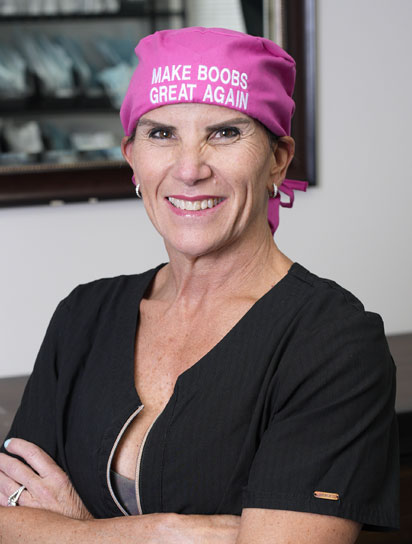Weight Loss Program FAQs
Home | Health & Wellness | Medical Weight Loss | Weight Loss Program FAQs
Your Weight Loss FAQs Answered
Check Here If You Have Weight Loss Questions for the Indianapolis Area’s Body Bar MD
Contact Us
Contact Us
What Sets Medical Weight Loss Apart?
At its core, medical weight loss is different because it’s not a one-size-fits-all solution. While standard diets might prescribe a generic caloric deficit and exercise regimen, medical weight loss delves deeper. It integrates metabolic and diagnostic testing, appetite-suppressant medications, and nutritional supplements into your plan. Dr. Christy Watson won’t just give you a plan and send you on your way; she’ll embark on this journey with you, discussing your goals, reviewing your medical history, and custom-tailoring a program that speaks to your individual needs.
What Sort of Weight Loss Are We Talking About? How Fast Does It Work?
Overall, patients tend to see a 10 percent loss of their total weight in the first three months, 2 to 5 percent in the fourth month, and 4 pounds average a month after that. Your specific weight loss will depend on your total weight, but the more you have to lose, the faster it will come off. Women can expect roughly 1 to 3 pounds a week, and men can expect 3 to 5 pounds a week. The first week is always the biggest weight loss, due to extra fluid that we carry leaving the body.

MEET THE DOCTOR
Dr. Christine Watson
How Long Until I See Results?
The timeline for a medical weight loss program can vary as widely as the people it’s designed for. Some might see their journey span a few months, while others may look at a much longer span. What’s important to remember is that this isn’t a race. Your plan is crafted around not just reaching a target weight, but doing so in a manner that’s sustainable and healthy for you. Patience and perseverance, guided by Dr. Christy’s advice, will be your best allies.
Is This Approach Safe or Too Good to Be True?
Safety is a pillar of all of our medical weight loss programs, especially under the supervision of a seasoned professional like Dr. Christy. These plans aren’t about drastic weight loss at lightning speeds; they’re about building a foundation for lasting health. Every aspect, from medications to meal plans, is selected with your medical history and current health status in mind, ensuring a safe and effective journey toward your weight loss goals.
Are There Side Effects to Watch For?
The side effects of this diet tend to be mild and temporary. They can include tiredness, coldness, dizziness, bad breath, headaches, and constipation. We educate you how these can be helped, we follow up with you frequently, and you are always welcome to message us with any questions.
Can I Really Lose More Weight Than With Traditional Dieting?
Yes, and there’s a simple reason why: support and customization. Traditional diets often fail because they lack adaptability. In other words, they don’t consider your body’s unique response to certain foods or your metabolic rate. They also lack the encouragement and guidance that come from a dedicated professional. Dr. Christy and her team don’t merely set goals for you. They walk you through to them, making adjustments as needed and providing the kind of motivation that makes all the difference. This focused approach often leads to more significant and longer-lasting results than the one-size-fits-all diet plans.
Is Using Medication for Weight Loss OK?
The use of appetite-suppressant medications can sometimes raise eyebrows. However, in the context of a medically supervised weight loss program, they’re tools—used judiciously—to help overcome hurdles that might have hampered your progress in the past. Under Dr. Christy’s watchful eye, these medications are prescribed with the utmost care so that they complement rather than complicate your journey.
How Can I Be Sure This Weight Loss Plan Is for Me?
Understanding your body’s unique weight loss “language is crucial.” Medical weight loss achieves this understanding through metabolic and diagnostic testing, helping tailor a plan that speaks directly to your body’s needs. It’s about finding the right key for your lock, rather than trying every key on the ring.
Frequently Asked Questions
Follow up appointments are usually every two to four weeks while you are on the diet and run about 10 to 15 minutes each. During the maintenance phase of your plan, follow ups are anywhere between one to four months.
The closest thing to a “magic formula” is a plan that’s both designed and adjusted specifically for you. This includes a healthy balance of nutrients, the right amount of physical activity for your capability and comfort level, and perhaps even medications or supplements to support your journey. Healthy weight loss is as much about nourishing your body as it is about reducing numbers on the scale.
A custom diet plan for medical weight loss is about more than just what you eat. It’s about creating a relationship with food that’s healthy, sustainable, and enjoyable. Dr. Christy will help you understand not just the “what” but the “why” behind your dietary recommendations, ensuring that your path to weight loss is also a journey toward healthier eating habits for life. The goal is not to be restrictive, but to give you the freedom to eat what you enjoy within a supportive framework that allows you to sustain improved weight and health.
People should eat about five times a day on this diet, consisting of three meals and two snacks. A minimum of four servings of protein per day are required.
Most people are very comfortable and not hungry when they undergo this weight loss plan. This is due to a higher protein intake and the state of ketosis (fat burning) that suppresses the appetite. We also offer appetite suppressants, if needed.
Yes. Everyone is required to keep a daily food log, either by journaling or using an app or online system. This habit becomes one of the most important factors in maintenance in order to prevent new weight regain.
You will be able to enjoy dining out because plenty of foods are allowed on this diet. For example, at a restaurant, you can order a meat/fish with a side of veggies. At get-togethers or potlucks, you can have meats, veggies, fruit, or other low carb options. Just no junk food or dessert!
Caffeine is allowed, and we will help you figure out a low carb creamer for your coffee if needed. Alcohol and fruit are both allowed in moderation—but not before the second month of the diet.
People need to drink at least 64 ounces of water (that’s eight cups) each day while on this plan. Zero-carb and zero-calorie options—such as flavored water, teas, and more—are allowed.
Yes, but our hope is that the exercise will soon be seen not as a requirement, but as an enjoyable aspect of the plan—and your life. We will work with each individual and their current activity level. We want this habit in place by the time maintenance begins, since it is one of the healthy habits required to prevent regaining weight. We will set small goals and increase exercise slowly.
We are happy to communicate with your primary care physician about your plan, your progress, and any medications we have to adjust during the diet.
Yes. We offer a couple of appetite suppressants including Phentermine and Topiramate. These medications help control appetite and increase weight loss. Patient eligibility for these is determined by reviewing medical history and more. Patients are followed very closely while using these and are only given a limited amount of the medication.
Yes. Weight loss and this diet have a very powerful sugar lowering effect. It is likely that we will be adjusting diabetes medications during the diet. Patients will continue to check their blood sugars while on the diet.
Can This Diet Help with High Blood Pressure and Cholesterol?
Yes. Even a small amount of weight loss can improve hypertension and high cholesterol. Many patients get to reduce or come off their medicines as they lose weight.
Have more questions? Remember that medical weight loss isn’t just another diet program. It’s a comprehensive, carefully curated plan designed around your body’s specific needs and goals. With the right guidance, tools, and mindset, it can be the key to unlocking a healthier, happier you. If you’ve been spinning your wheels with traditional diets, it might be time to consider whether medical weight loss is the route to the destination you’ve been searching for.




